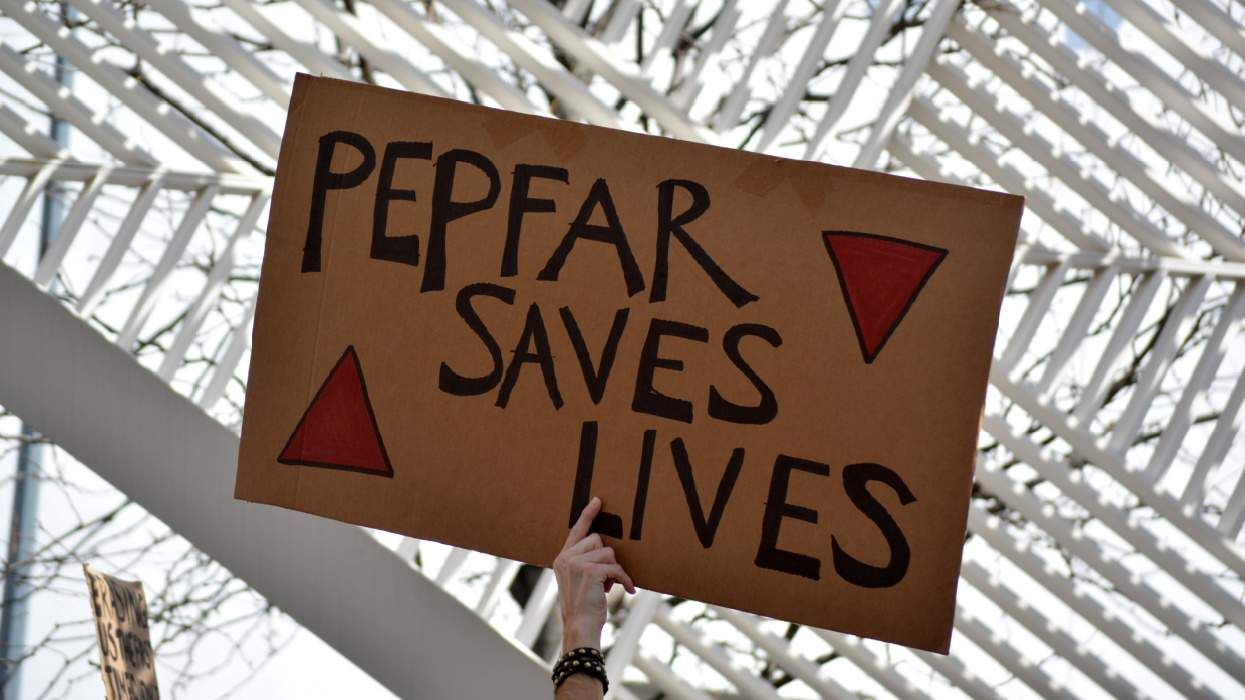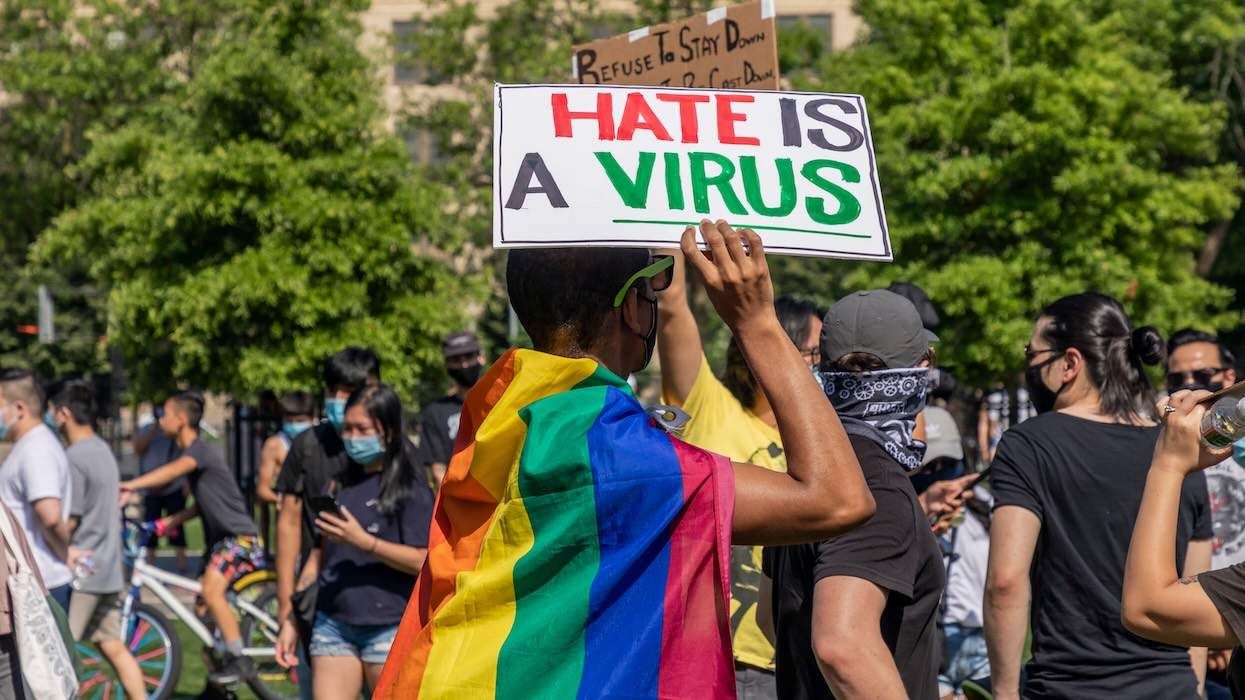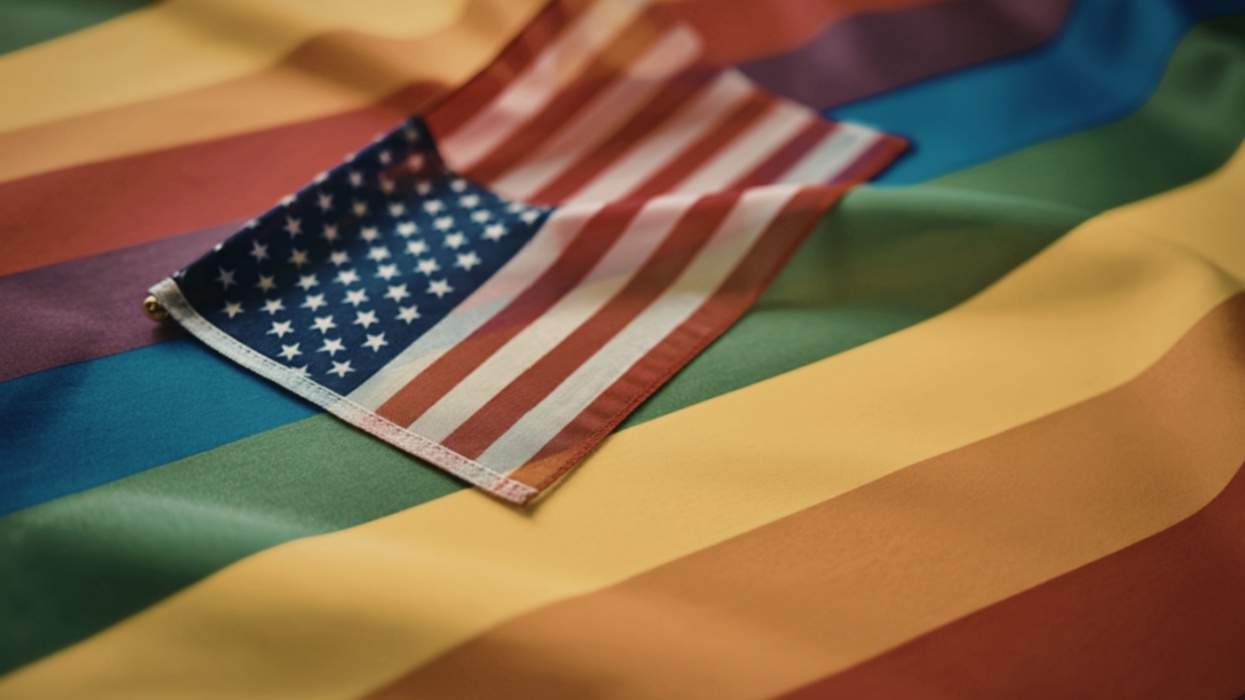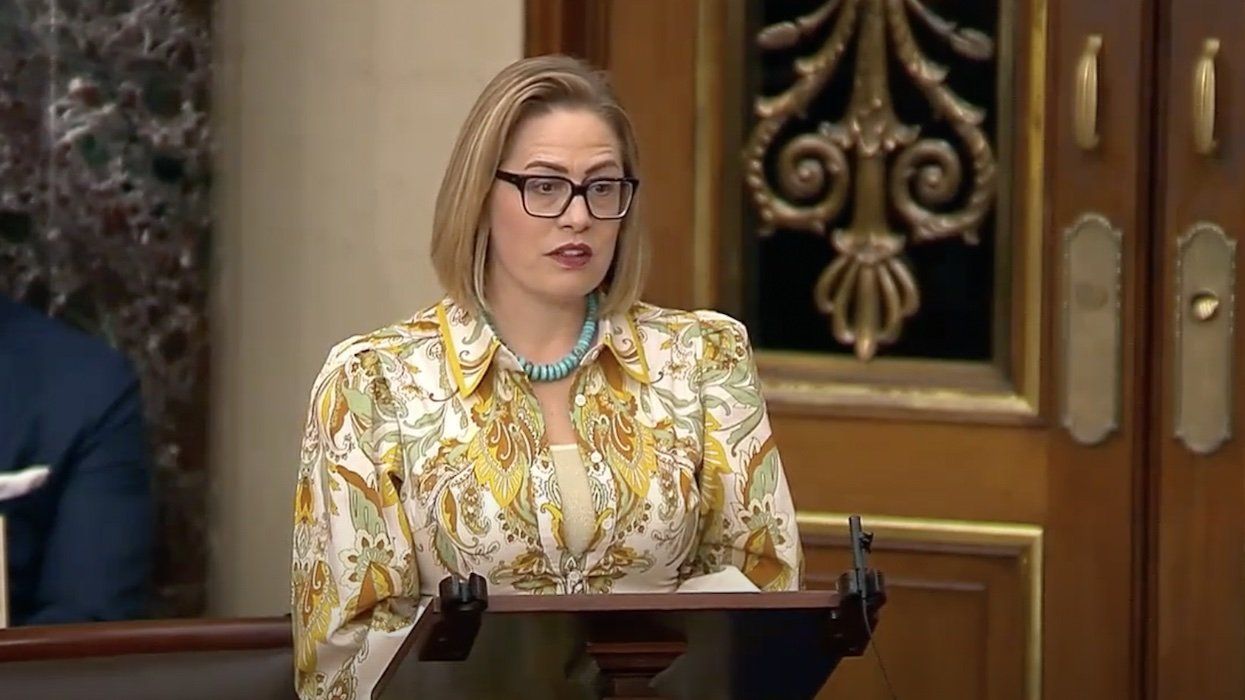The Advocate collaborated with Mara Keisling, the executive director of the National Center for Transgender Equality, to discuss what 2013 meant for trans rights. She highlighted the many victories seen this year, concluding that 2013 was a true year of momentum and sharing that perspective in a similar feature that ran first on The Huffington Post.
"In general, more momentum has been built over the course of the past year than ever before," Keisling told the Advocate. "For example, for the first time ever, a trans-inclusive version of the Employment Non-Discrimination Act passed through the Senate. I knew we were going to win, but what surprised me was the fact that not one senator spoke out explicitly against LGBT people. In fact, the only senator to publicly speak against the bill, Dan Coats (R-Ind.), did so as a matter of opposing all nondiscrimination policies, not just those that impact LGBT people."
Keisling also pointed to the White House's renewed interest in LGBT issues, specifically appealing to transgender individuals, as another sign that change is happening, noting supporting LGBT people is slowly becoming a position politicians can take without alienating swaths of voters. "We now have a president who says 'transgender' all the time," noted Keisling. "In recent months he's taken a stand on the issue of LGBT rights as it relates to Russia, and we've seen American foreign policy being used to make the world a better place for LGBT people."
Working with Keisling and the National Center of Transgender Equality, we've compiled a list of 10 of the most important transgender moments of 2013. Read on to learn more about the victories that made 2013 a tipping point in the fight for trans visibility and equality.
1. Trans-Inclusive Antiviolence Programs
In February, Congress passed the first explicitly LGBT-inclusive nondiscrimination law at the national level as part of the reauthorization of the Violence Against Women Act. The law protects LGBT people from discrimination in programs such as domestic violence shelters and rape crisis centers, and allows federal grants to focus on antiviolence work for LGBT people.
2. Historic 2-1 Senate Vote for ENDA
The first U.S. Senate vote on a trans-inclusive Employment Non-Discrimination Act was a remarkable triumph. Only a single senator spoke in opposition to the bill, and 10 Republicans joined 54 Democrats in voting for ENDA. In the coming months, advocates will continue building Republican support in the House and put pressure on Speaker John Boehner to bring the bill up for a vote.
3. Strides for Transgender Students
Almost every month has brought new signs of progress in eliminating barriers and strengthening opportunities for transgender students. In February, Massachusetts education officials released the strongest statewide rules to date protecting trans students, following Washington and Connecticut. In June, the Colorado Civil Rights Division ruled that a school committed unlawful discrimination by requiring a transgender girl to use a staff restroom instead of the girls' restroom. In July, the U.S. Justice Department entered a landmark Title IX settlement requiring a California school district to treat a transgender boy "the same as other male students in all respects," and in August, California passed legislation making this application of the law explicit.
4. Social Security Eases Gender Rules
In June, the Social Security Administration eased its requirements for changing your gender designation in SSA records. The move brought Social Security into line with rules for U.S. passports and immigration documents, and similar rules for veterans wishing to amend their gender on service records. The change also helps eliminate confusion, embarrassment, and increased exposure to discrimination when trans people interact with SSA staff or other government offices.
5. States Stand Against Insurance Discrimination
In 2013, five states and the District of Columbia began telling insurance companies for the first time that excluding transgender-specific health care from their plans constitutes unlawful discrimination. At least some plans in California, Colorado, Oregon, Vermont, D.C., and Connecticut are already updating plans to comply, providing individuals with coverage of medically necessary care for the first time. While many corporations and universities are eliminating exclusions voluntarily -- and finding there's no added cost to doing so -- those buying insurance on their own may need to look to their states to take action.
And on January 1, a provision in the Patient Protection and Affordable Care Act, also known as Obamacare, took effect, barring insurance companies from denying policies to people for being transgender.
6. State and Local Equality Laws Advance in Delaware, Puerto Rico, and Elsewhere
Efforts continued in red, purple, and blue states alike to pass laws to protect LGBT people in jobs, housing, and other settings. Delaware became the 17th state to include gender identity in its nondiscrimination policy in June, but less noticed was passage of LGBT protections in Puerto Rico. Local laws also continued to advance, expanding protections in locales ranging from San Antonio, Texas, to Fargo, N.D.
7. A Record Year for Visibility
Positive visibility for trans people in America seems to grow with each passing year. This year, that visibility was led by a wave of human interest stories on transgender young people and their families, and by the critically acclaimed performance of Laverne Cox on the hit show Orange Is the New Black. Jennifer Pritzker became the first transgender person to be named to Forbes' annual list of the 400 richest Americans. In August, Chelsea Manning made international news when she came out as transgender in a statement delivered by her lawyer during a segment on the Today show. Manning's public announcement sparked intense conversation over the correct way to portray trans people in the media as well as debate on medical treatment for transgender prisoners.
8. Name and Birth Certificate Changes Get Easier in California, Oregon, and Washington, D.C.
While half of states now make it relatively easy to update the gender on a driver's license, efforts are also under way to ease the basic step of legally changing names and the often more difficult step of updating one's birth certificate. This year Oregon and the District of Columbia joined at least three other states in guaranteeing that individuals won't be required to show proof of surgery to update their birth certificates. D.C. also joined the nearly 50 percent of states that have eliminated requirements that name changes be published in the newspaper, an expensive and intimidating step for many trans people. Similar legislation has been proposed in California and Hawaii.
9. Depathologizing Gender Identity Issues
In May, the American Psychiatric Association published the fifth version of its Diagnostic and Statistical Manual of Mental Disorders, officially renaming "gender identity disorder" as "gender dysphoria," and formally recognizing that it is not a trans person's innate identity that may call for treatment, but rather the distress some feel about an identity, body, and social role that don't line up. The APA also issued statements condemning antitrans discrimination and specifically calling for insurance coverage of health care for transgender people.
10. Hope for Transgender Prisoners
As calls for scaling back America's reliance on imprisonment grow from Texas to the White House, major steps are being taken to keep trans people safe when they're behind bars safe. In Harris County, Texas, which includes Houston, America's third-largest jail was the latest to adopt comprehensive policies that include housing prisoners based on their gender identity, following standards from the U.S. Justice Department.


































































Charlie Kirk DID say stoning gay people was the 'perfect law' — and these other heinous quotes